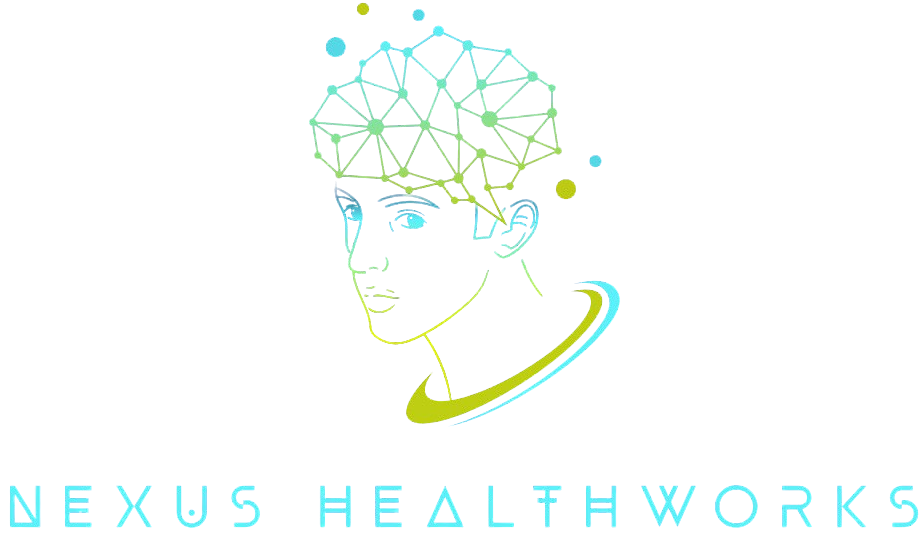Mood disorders encompass a variety of mental health conditions characterized by persistent emotional disturbances, which can affect daily life, relationships, and overall well-being. These conditions range from depressive disorders and bipolar disorder to seasonal affective disorder and more. Mood disorders are not merely about “feeling sad” or “having mood swings”; they are complex conditions requiring professional diagnosis and tailored care.
At Nexus Healthworks NP in Psychiatry P.C., we provide integrated care to help children, adolescents, and adults manage mood disorders effectively through therapy, medication management, and lifestyle adjustments.
Recognizing the Signs of Mood Disorders
Early identification is crucial for effective treatment. Mood disorders can manifest in a variety of ways, depending on age and individual factors. Common symptoms include:
- Persistent sadness or low mood
- Irritability or frustration, even over small matters
- Extreme mood swings ranging from elation to depression
- Fatigue or lack of energy
- Loss of interest in activities once enjoyed
- Difficulty concentrating or making decisions
- Changes in appetite or weight
- Sleep disturbances, such as insomnia or oversleeping
- Feelings of worthlessness or excessive guilt
- Thoughts of self-harm or suicide
These symptoms can vary in severity, and it’s important to seek professional help when they interfere with daily functioning.
The Importance of Treating Mood Disorders
Mood disorders affect more than just emotions; they impact every aspect of a person’s life, from relationships to physical health. Left untreated, mood disorders can lead to:
- Strained relationships with family and friends.
- Reduced productivity at school or work.
- Increased risk of developing physical health problems, such as heart disease or chronic fatigue.
- Co-occurring conditions, including anxiety, substance abuse, or eating disorders.
- Long-term impacts on self-esteem and overall quality of life.
Addressing mood disorders is not just about alleviating symptoms—it’s about restoring balance, building resilience, and improving overall mental health. Professional care provides individuals with tools to better understand and manage their condition, allowing them to lead fulfilling lives.
How We Approach Mood Disorder Treatment
At Nexus Healthworks NP in Psychiatry P.C., we adopt a holistic and personalized approach to mood disorder treatment. Each individual’s journey is unique, and so is their treatment plan.
Steps to Managing Mood Disorders:
- Initial Evaluation and Diagnosis: Our process begins with a thorough assessment to understand your symptoms, history, and challenges. This helps us accurately diagnose the condition and recommend tailored interventions.
- Development of a Personalized Plan: Based on the diagnosis, we create a treatment plan that may include psychotherapy, lifestyle modifications, and medication management if necessary.
- Brief Psychotherapy: Talk therapy, such as cognitive-behavioral therapy (CBT), helps identify negative thought patterns and build healthier coping mechanisms.
- Medication Management: If indicated, medications like antidepressants or mood stabilizers are prescribed and monitored for efficacy and side effects.
- Ongoing Monitoring and Adjustments: Treatment is an evolving process. Regular follow-ups ensure that your plan remains effective as your needs change over time.
- Family Involvement and Support: For younger patients, involving family in therapy sessions can improve outcomes and provide a supportive environment for healing.
Building Emotional Resilience
While some factors, such as genetics, cannot be controlled, there are proactive steps individuals can take to reduce the risk of mood disorders or prevent recurrence:
- Maintain a Healthy Lifestyle: Regular physical activity, balanced nutrition, and adequate sleep can significantly improve mental well-being.
- Develop Coping Mechanisms: Learning stress-management techniques, such as mindfulness or relaxation exercises, can help navigate life’s challenges.
- Seek Social Support: Strong relationships and a supportive community provide a buffer against stress and emotional difficulties.
- Limit Substance Use: Alcohol and drug use can exacerbate mood disorders or interfere with treatment effectiveness.
- Monitor Early Signs: Regularly check in with your emotions and seek help if symptoms resurface or worsen.
- Adhere to Treatment Plans: Following prescribed therapies and attending follow-up appointments ensures long-term success.
A Path to Recovery
Mood disorders, while challenging, are highly manageable with appropriate care and support. Effective treatment often results in significant improvements in overall quality of life. Individuals who commit to therapy, follow prescribed medication regimens, and cultivate strong support networks frequently experience greater emotional stability and resilience. They build stronger relationships with loved ones, perform better in academic or professional environments, and discover a renewed sense of purpose and fulfillment.
Moreover, proactive management strategies help reduce the risk of relapse, empowering individuals to maintain long-term progress. Living with a mood disorder does not have to define you. With the right treatment and resources, achieving balance, personal growth, and overall well-being is entirely possible.
Common Questions About Mood Disorders
What causes mood disorders?
Mood disorders can result from a combination of genetic, biological, environmental, and psychological factors. Identifying these factors helps guide effective treatment.
Can children experience mood disorders?
Yes, mood disorders can occur in children. Early intervention is key to supporting their development and preventing long-term impacts.
How effective is treatment for mood disorders?
With professional care, most individuals experience significant symptom relief and an improved quality of life. Success often depends on consistency and follow-through.
Are mood disorders lifelong conditions?
While some may require long-term management, many individuals achieve lasting recovery through effective treatment and lifestyle adjustments.
Do mood disorders always require medication?
Not always. Some cases can be managed with psychotherapy and lifestyle changes. Medication may be recommended for more severe symptoms.
Your Journey Toward Emotional Wellness
Addressing mood disorders is a courageous step toward a healthier, happier life. At Nexus Healthworks NP in Psychiatry P.C., we are dedicated to helping individuals of all ages navigate this journey with empathy and expertise. Whether through psychotherapy, medication management, or a combination of both, we focus on providing comprehensive care tailored to your unique needs.
Don’t let mood disorders hold you back from achieving your full potential. Reach out today and take the first step toward reclaiming your emotional balance and well-being. Together, we can create a path to a brighter future.




